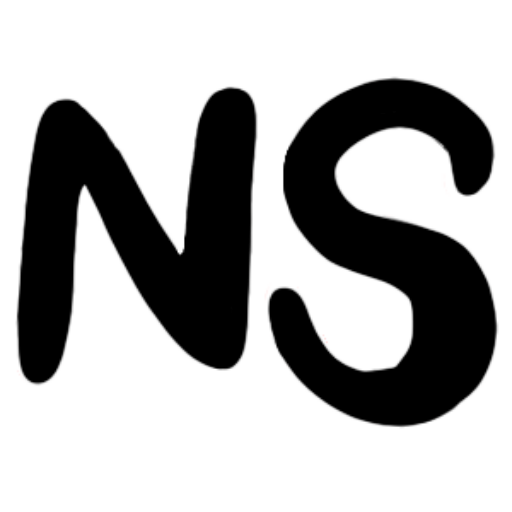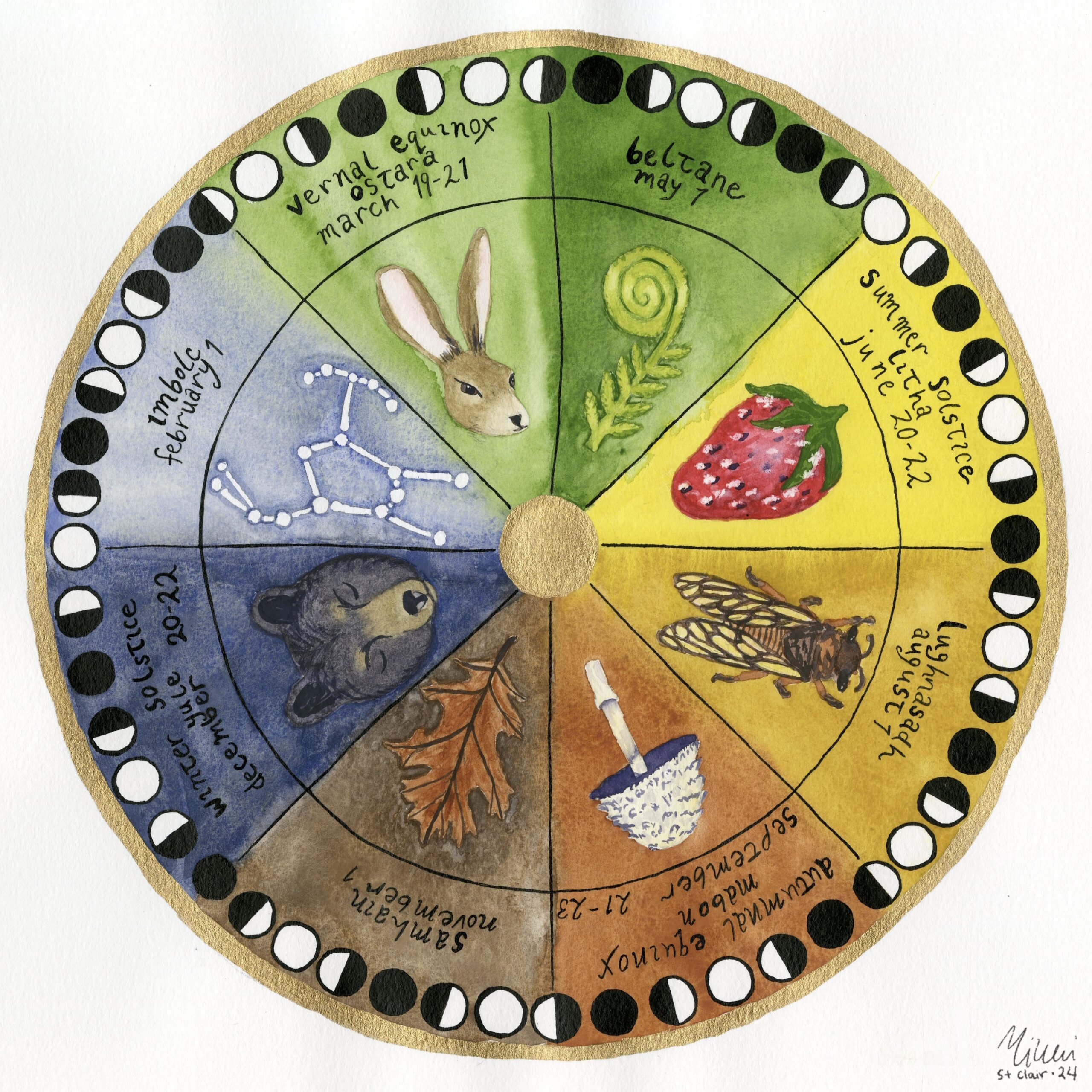The Wheel of the Year
2024, watercolour, ink
The Wheel of the Year is a modern approach to 8 pagan holidays/festivals with roots in Celtic, Germanic, and Norse mythology and folklore. These celebrations mark the changing of the seasons through the solstices and equinoxes, and the mid-way points between each. Many of these days (namely the solstices and equinoxes) are also important to Indigenous people across Turtle Island and each community has their own unique traditions.
I’ve chosen to represent these holidays with a symbol of something that’s taking place in nature at each point throughout the cycle. The symbols I’ve chosen are present where I live, in so-called Ontario, around these times of the year.
The best part about the Wheel of the Year is you can start celebrating these seasonal shifts, for free, just by going outside! Go alone or get some friends together! Go for a walk or find a nice sit-spot! Tune into your senses and let me know what you find 🙂
Winter Solstice / Yule (December 20-22): Sleeping Black Bear. By this time the bears are cozy in their dens, hibernating their way through winter.
Imbolc (February 1): Orion Constellation. While much of nature is frozen and waiting for spring, this constellation shines bright in the southwest sky at this time of year.
Vernal Equinox / Ostara (March 19-21): Snowshoe Hare. This time of year is mating season for these little friends, along with many other mammals that have short gestation periods.
Beltane (May 1): Fiddlehead. Almost all ferns have fiddleheads, and those of the ostrich fern are edible (please do some research before foraging and eating fiddleheads). These little spirally sprouts appear in late April/early May before unfurling into a full fern.
Summer Solstice / Litha (June 20-22): Woodland Strawberry. These plants first flower in the spring and the berries are usually ripe by this time of year! The Anishinaabemowin/Ojibwe name for the full moon in June is Ode’imin Giizis (Strawberry Moon).
Lughnasadh (August 1): Okanagana Rimosa Cicada. The soundscape of the summer is filled with the calls of crickets, grasshoppers, and cicadas.
Autumnal Equinox / Mabon (September 21 – 23): Shaggy Mane Mushroom. These mushrooms are typically found in late summer or fall. They first appear as white cylinders before their bell-shaped cap opens and eventually produces a dark ink.
Samhain (November 1): Northern Red Oak leaf. There are many types of oak trees around the world, and each play a vital role in the lives of many birds, mammals, and insects (a larger number of species are supported by oaks than many other types of trees).
If you would like to learn more about these seasonal shifts and the year as an ever-repeating cycle, you could start with these websites:
The background colours of my painting are inspired by Tijana’s (of tijanadraws) Wheel of the Year illustration for “The Magical Year – A book of pagan holidays” by Cristina Romero.

